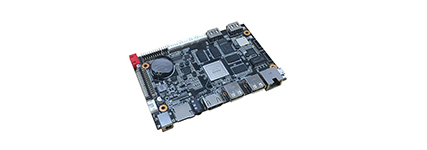Surely, the Rise of Mini PCs: A Market Analysis

In recent years, the mini PC market has experienced exponential growth, with sales projected to reach over 10 million units by 2025. This surge can be attributed to various factors including technological advancements and changing consumer preferences.
The Characteristics of Mini PCs in Today’s Market
Mini PCs are compact computing devices that offer a balance between performance and space efficiency. Their market attributes include versatility, energy efficiency, and affordability compared to traditional desktop computers. Additionally, as environmental regulations become increasingly stringent globally, mini PCs have adapted by incorporating eco-friendly materials and designs that minimize electronic waste. This adaptability not only enhances their appeal but also aligns them with contemporary sustainability goals.
Panel Mount PCs and Environmental Regulations
Panel mount PCs represent a specialized segment within the mini PC category designed for industrial applications. These devices must comply with rigorous environmental regulations such as RoHS (Restriction of Hazardous Substances) and WEEE (Waste Electrical and Electronic Equipment). By adhering to these standards, panel mount pcs ensure reduced toxicity in manufacturing processes while promoting responsible recycling practices at end-of-life stages. Furthermore, their robust design often includes features like fanless cooling systems which contribute to lower energy consumption during operation.
The Environmental Regulations Features of ShareVDI

sharevdi is an innovative solution that leverages virtual desktop infrastructure technology while emphasizing compliance with environmental regulations through several key aspects:
- E-Waste Reduction: By centralizing resources on servers rather than individual machines, ShareVDI significantly reduces electronic waste generated from outdated hardware.
- Energy Efficiency: Virtualization allows multiple users to operate on shared hardware efficiently; this leads to decreased power consumption per user compared to traditional setups.
- Sustainable Resource Management: The centralized nature facilitates better resource allocation which minimizes unnecessary duplication of physical components across organizations.
- Lifespan Extension: Regular updates can be applied centrally without needing new hardware purchases frequently; thus extending the lifecycle of existing equipment.
A Conclusion on Mini PCs in Relation to Environmental Regulations
The integration of environmental considerations into the design and functionality of mini PCs demonstrates a significant shift towards sustainable computing solutions. As we navigate an era where ecological responsibility is paramount, it becomes evident that both mini PC technologies—including panel mount configurations—and innovations like ShareVDI play crucial roles in aligning industry practices with regulatory expectations aimed at reducing our carbon footprint. Ultimately, embracing these characteristics will not only benefit manufacturers but also consumers who prioritize sustainability alongside performance.
